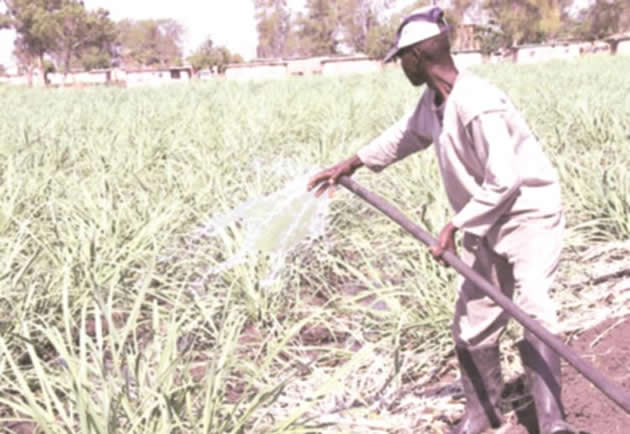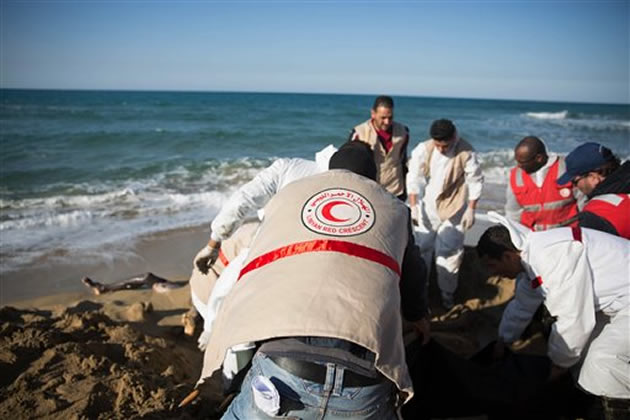Zinwa maintains open door policy


Farmers who irrigate without agreements commit an offence and risk being fined or imprisoned in terms of Section 118 of the Water Act
Marjorie Munyonga Right of Reply
THE Zimbabwe National Water Authority (Zinwa) is concerned by statements attributed to leaders of farmers’ unions, in particular the Zimbabwe National Farmers’ Union director, Mr Edward Tome, during their appearance before the Parliamentary Thematic Committee of Indigenisation and
Empowerment. During their appearance various serious allegations were made against Zinwa and had the net effect of portraying the authority as hindering productivity on the farms.
Among the allegations were accusations that Zinwa was charging exorbitant tariffs and that it was going as far as charging farmers when they did not even use water for seasons. These disturbing allegations are not true and cannot stand any test.
To begin with, Zinwa, being a creature of statute and being the Government’s lead agency in terms of water resources management, operates in terms of the law and endeavours to follow the same in the everyday execution of its duties. It must be noted that in terms of the Water Act, all irrigating farmers are expected to be holders of either water permits or water abstraction agreements.
Water permits apply in respect of those irrigating using water from rivers and these are issued and enforced by sub-catchment councils. Sub-catchment councils are stakeholder groups created by the Water Act and are responsible for, among other things, issuing water permits, enforcing them and collective levies and rates for water use. Agreements apply in respect of those farmers and other commercial users who use water from Zinwa managed dams.
The users enter into water abstraction agreements with Zinwa as provided for in terms of Section 2 of Statutory Instrument 206 of 2001 which reads, “ No surface water permit shall be required of a person who wishes to abstract surface water from a water storage works or share of a water storage works vested in the State of the National Water Authority for any purpose mentioned in paragraph (a), but such person must enter into an abstraction agreement with the National Water Authority in terms of subsection (6) of Section 39 of the Act.”
It therefore goes without saying that Zinwa can only bill farmers who are agreement holders and any tariffs and amounts to be abstracted would be clearly stipulated in the agreement. An agreement holder cannot then get surprised by the bill he or she receives.
These agreements are valid for the water year, which runs from April 1 to March 31 of every year. If a farmer wishes to continue irrigating, then the agreement has to be renewed failing which means no water would be reserved for the farmer in that water year. To, therefore, allege that farmers still receive bills even when they skip “two or three” seasons cannot be true.
Once the agreement is not renewed, it follows that no water gets reserved and consequently no bill will be sent to the farmer. In the same vein, farmers who query their bills are encouraged to present the same at their respective Zinwa Catchment offices where they will get assistance.
Farmers who irrigate without agreements commit an offence and risk being fined or imprisoned in terms of Section 118 of the Water Act.
The farmers further allege that the bills have no basis since there are no Zinwa meters at their farms. Zinwa needs to reiterate that the onus to install a meter at the water abstraction point rests with the water user. This is the position of the law. In terms of Section 43 of the Water Act, a permit or agreement holder has the obligation “to provide and install a meter or other measuring device for measuring and recording the amount of water abstracted”.
Zinwa, therefore, has no obligation whatsoever to provide any meter. However, over the years, the authority has fully understood the plight of the resettled farmers, many of whom have no financial capacity to procure the bulk water meters required for metering irrigation water, in such cases, the farmers have been billed using traceable and accepted estimates. These estimates would be provided by experts such as agriculture extension officers who have the knowledge of crop water requirements.
The problem, however, came with some unscrupulous farmers who either apply for more water than they need in the hope of using water abstraction agreements to justify applications for loans or inputs support. These farmers ended up using less water than stipulated in the agreements but are still required to pay for that water. This is so because water is billed by allocation.
Once an agreement is entered into, Zinwa reserves the agreed amount in the dam and only releases it as and when the agreement holder requires it. The water cannot be accessed by anyone else. So when one uses less water, he has to pay for the full allocation because by holding onto the water, the user deprives other potential users access to that water.
Zinwa has over the years played its part in the country’s social and economic development and will continue to do that as evidenced by the December 2015 reduction of raw water tariffs for irrigating farmers. The reduction saw A2 farmers being required to pay $5 per megalitre or one million litres of water while their A1 counterparts will now pay $3 for the same amount. Communal farmers will pay $2 for 1 million litres of water which also translates to 5 000 drums of irrigation water.
This reduction was to help improve the uptake of raw water from dams and constitutes Zinwa’s readiness to play its part in the fulfilment of Zim-Asset and the 10-Point Plan as enunciated by His Excellency the President, Cde Robert Mugabe, in last year’s State of the Nation Address. The reduction, which has been welcomed by many farmers, was effected despite the fact that Zimbabwe’s raw water tariffs remain far below those charged in the region.
Zinwa also maintains an open door policy and all stakeholders who need to have any issues clarified are free to visit any Zinwa catchment office or the head office for clarity.
- Issued by Zinwa Corporate Communications and Marketing Department.









Comments